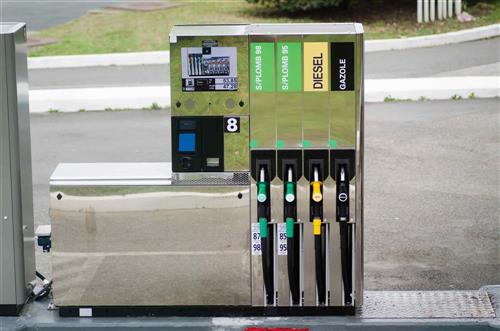Oil prices remain under scrutiny after surprise OPEC+ production cut…
(Boursier.com) — Oil prices remain well oriented after the surprise reduction in production by OPEC+. A barrel of US light crude for May delivery now gains almost 1% to $81.1 on the Nymex after jumping more than 6% yesterday while a barrel of Brent from the North Sea (June maturity) goes up 0.8% to $85.6 in London. The cartel and its allies took the surprise decision on Sunday to cut crude production by 1.16 million bpd from May, including a 500,000 bpd cut from Saudi Arabia.
“The drop in supply has thrown short sellers under the bus,” Jessica Amir, market strategist at Saxo Capital Markets, tells ‘Bloomberg’, referring to traders who had bet on a pullback in oil before the OPEC+ decision. The producer group began to see the need for a policy review on March 20, according to people familiar with the matter cited by the agency, when Brent crude hit its lowest level in 15 months. The Saudis have indicated that short sellers need to remember the pain OPEC+ can still inflict on them, the sources say. The move by OPEC+ brings the total volume of its production cuts since last October to 3.66 million bpd, according to Reuters calculations, or around 3.7% of global demand.
“OPEC now has very significant pricing power compared to the past,” Goldman Sachs analysts point out. Saudi Arabia, the United Arab Emirates and Kuwait should comply fully and “almost immediately” with the agreement, while Iraq’s membership could be more gradual and imperfect, they say. The bank’s teams have raised their forecast for Brent to $95 a barrel by the end of the year and to $100 for 2024 to take into account these new oil production cuts.
“The motivation behind the cut … is unclear from the very limited public statements that have been made,” said Callum Macpherson, commodities manager at Investec. “This may be due to concerns about recent equity market volatility spilling over to oil prices or because members perceive weakness in the physical market that is not apparent to the broader market.”
US President Joe Biden’s administration said it was made aware of the production cut and told Saudi officials it disagreed. “We don’t think production cuts are desirable at this time, given the market uncertainty. And we’ve made that clear,” said John Kirby, strategic communications coordinator at the National Security Council. It now remains to be seen what impact these new cuts in black gold production will have on prices at the pump for consumers and, ultimately, on inflation, while the major central banks are having all the trouble in the world to bring prices back to their targets.
It should also be noted that the Iraqi government has signed an agreement with Kurdistan aimed at resuming oil exports from the semi-autonomous region via the Turkish port of Ceyhan. The two sides were embroiled in a years-long dispute over control of Kurdistan’s oil production. On March 25, Turkey shut down an oil pipeline carrying more than 400,000 barrels a day between northern Iraq and Ceyhan, after an international trade tribunal ruled that Kurdish authorities should not export oil from the Mediterranean terminal without Baghdad’s approval.
©2023 Boursier.com
